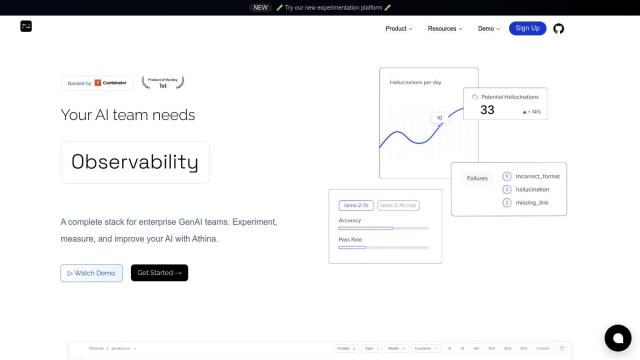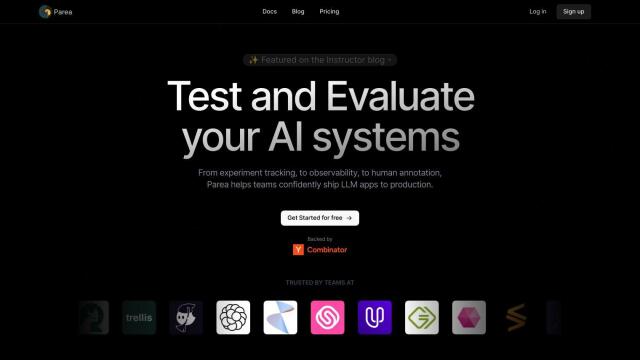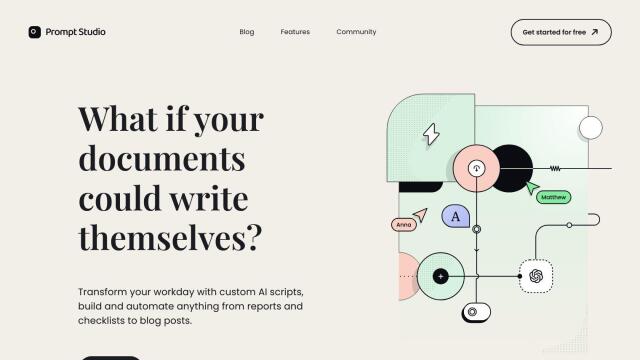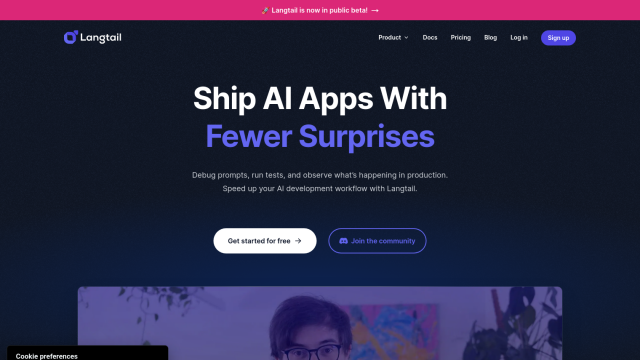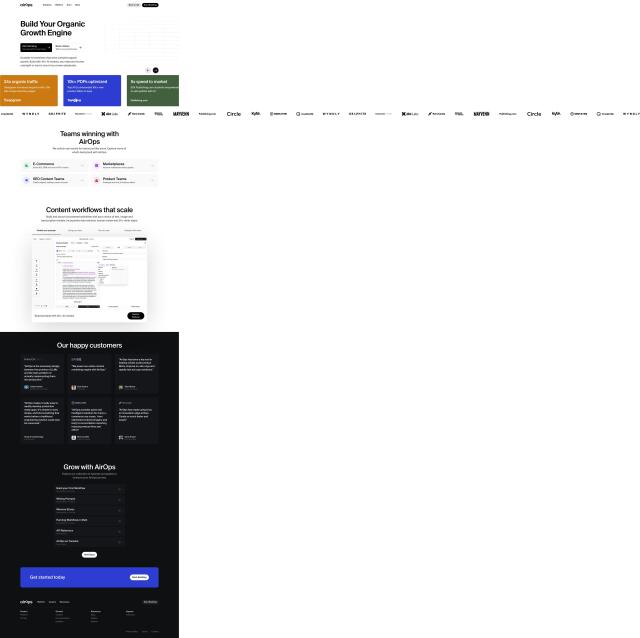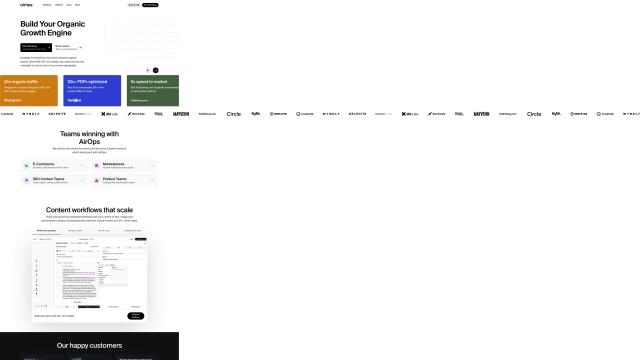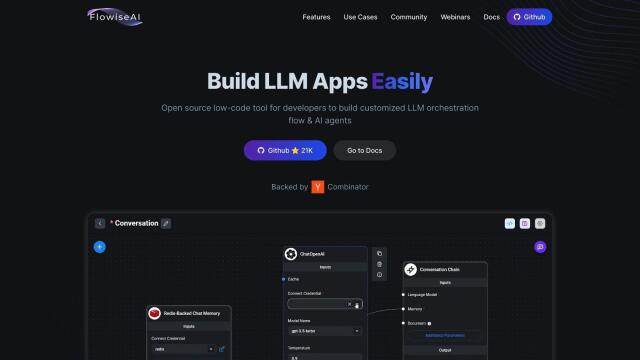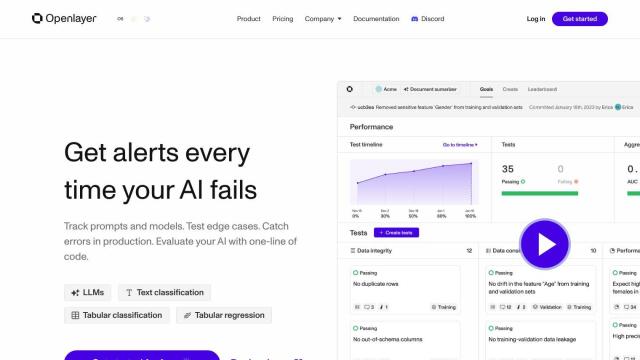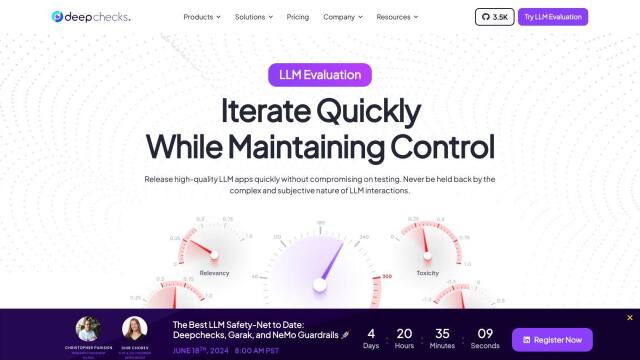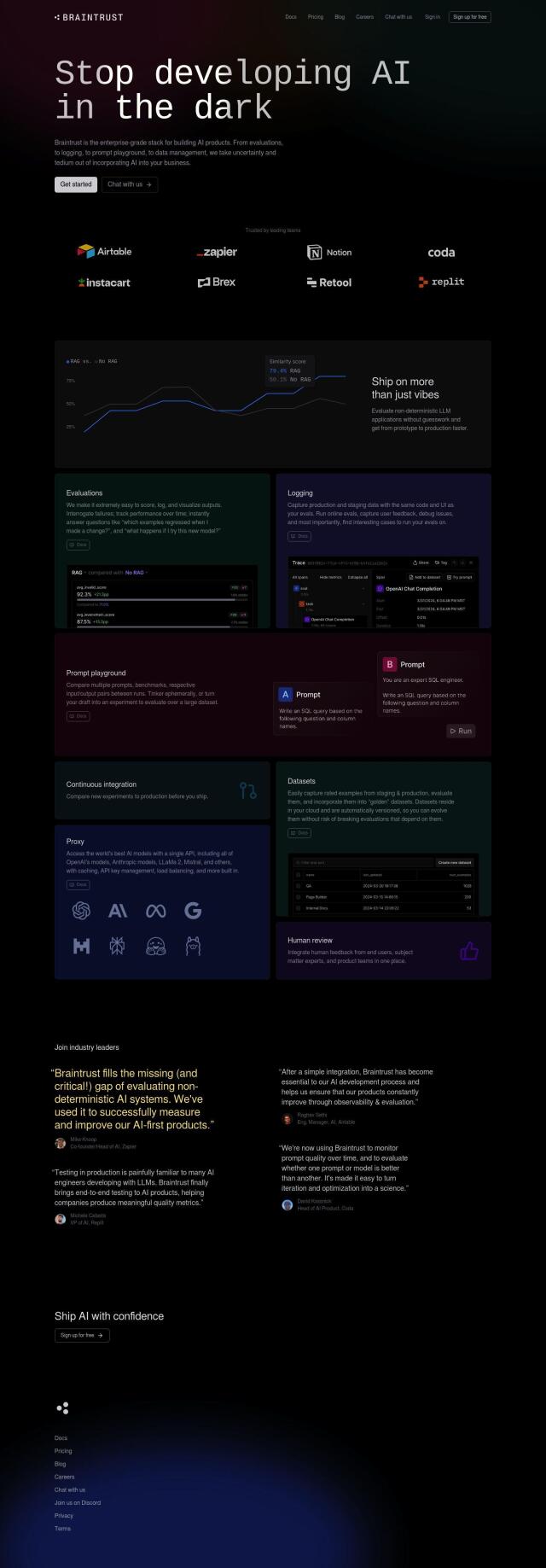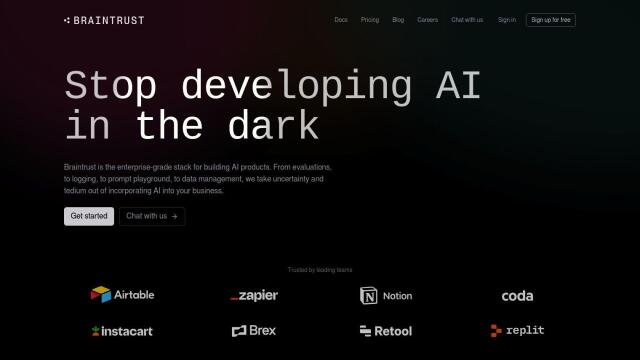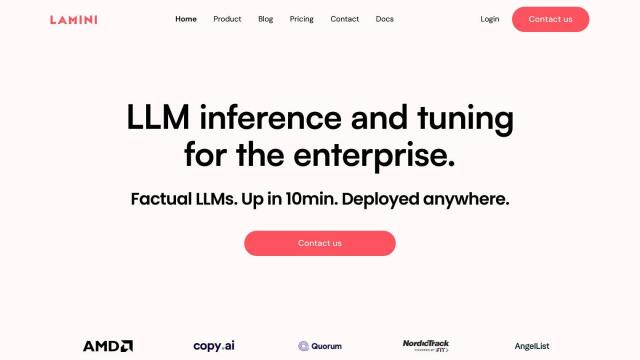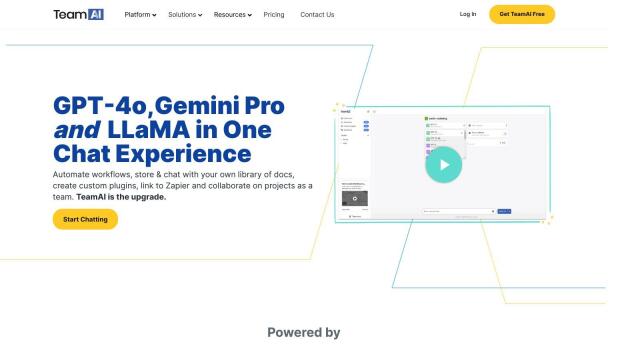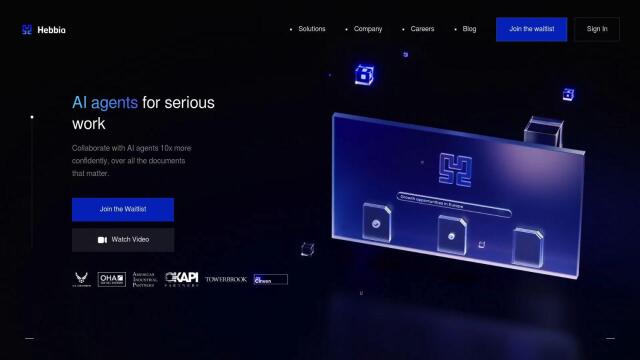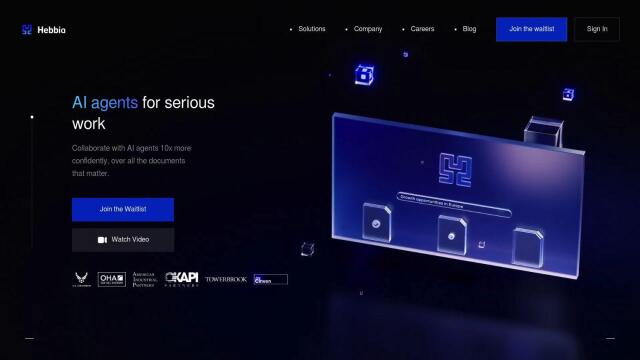Question: Can you recommend a tool that helps streamline the development of large language model products and optimizes AI features for better customer satisfaction?


Humanloop
If you're looking for tools to help you build large language model products and tune AI features for maximum customer satisfaction, Humanloop is a great option. It helps to overcome common challenges like suboptimal workflows and poor collaboration by offering a sandbox environment for developers, product managers and domain experts. Humanloop includes a sophisticated prompt management system, evaluation and monitoring tool and customization options for integrating private data and fine-tuning models. It works with top LLM providers and includes SDKs in Python and TypeScript for easy integration, so it's a good option for product teams and developers who want to get more done and collaborate better.

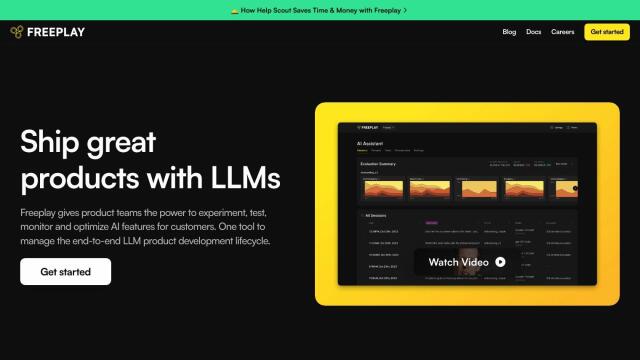
Freeplay
Another option is Freeplay, which provides an end-to-end lifecycle management system for LLM product development. It lets you experiment, test, monitor and optimize AI features with tools like prompt management, automated batch testing, AI auto-evaluations and human labeling. Freeplay offers a unified interface for teams, with lightweight SDKs for Python, Node and Java, and deployment options that are compliant with regulatory requirements. It's geared for enterprise teams that want to accelerate development and lower costs.

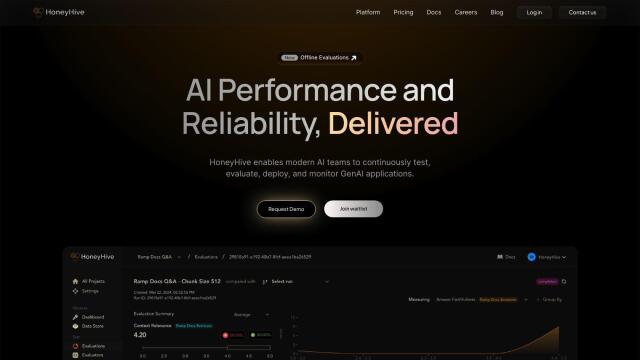
HoneyHive
If you're in the AI evaluation, testing and observability camp, HoneyHive is a mission-critical tool. It's a shared workspace for collaboration, testing and evaluation of LLM applications, with support for automated CI testing, production pipeline monitoring and prompt management. HoneyHive also includes tools for dataset curation, labeling and versioning, automated evaluators and human feedback collection. It can be used for tasks like debugging, online evaluation and data analysis, and offers a free Developer plan for individual developers and a customizable Enterprise plan for larger teams.

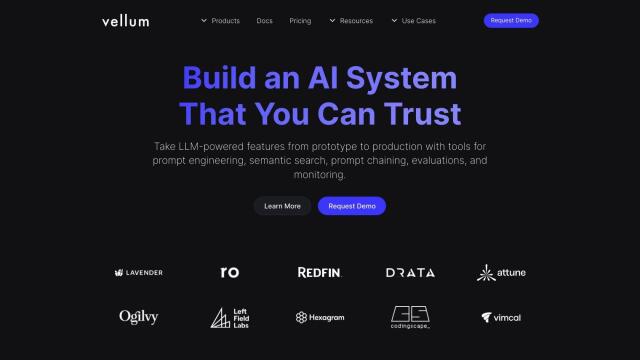
Vellum
Last, Vellum is a suite of tools for managing the lifecycle of LLM-powered applications. It includes tools for prompt engineering, semantic search, prompt chaining and evaluation and monitoring. Vellum is designed for enterprise-scale use with features like SOC2 Type II compliance, virtual private cloud hosting and customizable data retention. It's geared for teams that want to experiment with new prompts and models without affecting production, and that need to ensure secure and scalable AI deployment.



